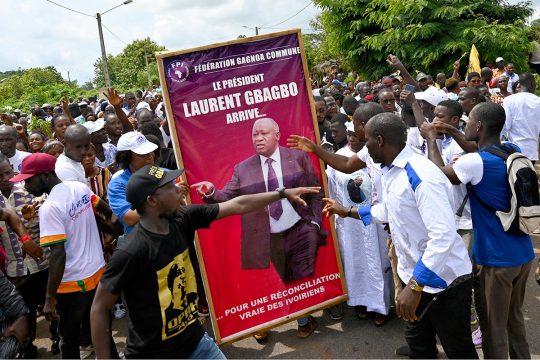Ivory Coast's justice minister on Monday gave details of President Alassane Ouattara's pledge to show leniency to 3,100 inmates, saying only a small portion of those selected were behind bars for deadly post-election unrest.
The president's act applied to just 100 people awaiting trial in connection with the violence, which left some 3,000 dead in the west African nation over five months in 2010-2011, Justice Minister Gnenema Coulibaly told AFP.
The move, announced in Ouattara's New Year's address to the nation on Thursday, affects "3,000 people, and another 100 who received provisional release, which is not a pardon," said Coulibaly.
"This measure (provisional release) concerns people covered by the post-election crisis cases. Most of them have not yet been judged."
Coulibaly said the move "can be considered an effort for social cohesion" as the country seeks to return to stability after years of turbulence.
Ouattara told the nation on Thursday that he had decided to use his right of "clemency to grant full and partial sentence reductions."
He added it would allow 3,100 people to "get their freedom back and for others to see their terms shortened", but did not give a breakdown of how many prisoners would go free immediately and how many would remain behind bars.
Ouattara, a former economist, won a second five-year term by a landslide in October in the nation's first peaceful vote in more than a decade.
He has been credited with reviving the economy of the war-scarred country, the world's leading cocoa producer, investing in huge infrastructure projects that have helped raise annual growth to around nine percent.
The post-election violence in 2010-11 came after former strongman leader Laurent Gbagbo refused to concede defeat to Ouattara.
Gbagbo was eventually defeated by pro-Ouattara forces backed by the UN and France, is now awaiting trial before the International Criminal Court in the Hague.
The 2010-2011 crisis was a bloody epilogue to a decade of upheaval, splitting west Africa's economic powerhouse between a rebel-held north and a loyalist south.





